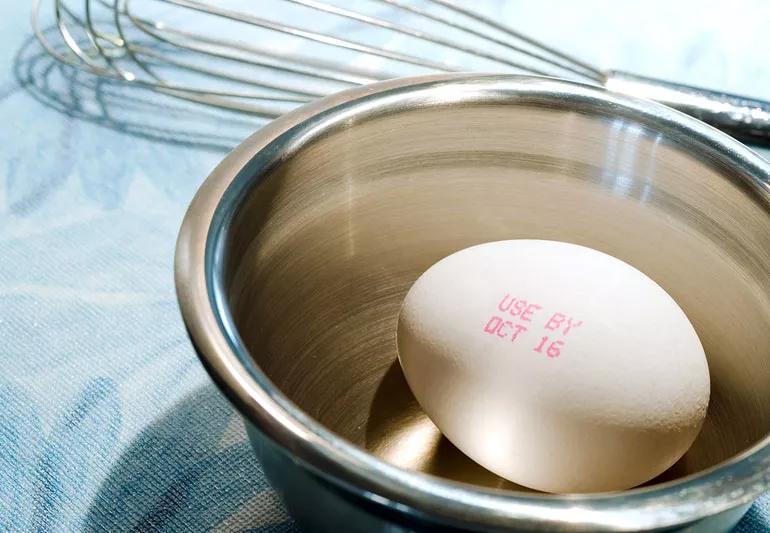How long is it really safe to keep foods?

Image content: This image is available to view online.
View image online (https://assets.clevelandclinic.org/transform/24f78d72-2252-4567-ae45-4b4308a57088/expiraitonDate-164015559-770x533-1_jpg)
Egg with expiration date stamp
The label on the eggs in your fridge says “best by” yesterday’s date. Is it safe to make one last omelet? You hate to waste the eggs, but you also don’t want to get sick.
Advertisement
Cleveland Clinic is a non-profit academic medical center. Advertising on our site helps support our mission. We do not endorse non-Cleveland Clinic products or services. Policy
Registered dietitian Anna Kippen, MS, RDN, LD, offers up some food safety guidance for all your food groups.
You’ll see dates on many perishable foods such as meat, poultry, eggs and dairy products. But you might be surprised to learn that they aren’t usually about food safety.
According to the USDA’s Food Safety and Inspection Service, manufacturers put “best by” or “best if used by” dates on their products to let retail stores and consumers know how long their products are expected to maintain their best taste and texture.
These dates aren’t required by federal law (though some states require them) and don’t necessarily indicate a product’s safety (with the exception of baby formula). In fact, perishable products are usually safe to consume beyond their “best by” date if they’ve been handled and stored properly.
But there’s no hard and fast rule here — it’s ultimately up to you to decide whether it’s a good idea to go ahead and make that omelet du jour, or to toss the eggs and opt for a bowl of oatmeal instead.
Check your food for these surefire signs of spoilage:
These items should be safe in the fridge or pantry for the following amount of time:
Advertisement
If you aren’t going to be able to eat something in your fridge before it goes bad, consider tossing it in the freezer. You can safely freeze almost any food at or below 0 degrees Fahrenheit, with the exception of canned food and eggs in their shell, and it will not significantly reduce the amount of nutrients in that food.
“Freezing food can be a wonderful way to extend shelf life and keep quick, easy, healthy options on hand,” Kippen says.
To preserve the food’s quality as much as possible, wrap it in heavy-duty aluminum foil or airtight freezer bags. If your food becomes freezer burned, that doesn’t mean it’s unsafe to eat. Simply cut the freezer-burned portions away before you cook the food.
For the best quality, recommended freezer shelf life is:
Advertisement

Sign up for our Health Essentials emails for expert guidance on nutrition, fitness, sleep, skin care and more.
Learn more about our editorial process.
Advertisement
Keep cooked rice and pasta in your fridge — not on your counter — to help prevent this sneaky food poisoning
Food poisoning typically passes within 12 to 48 hours, with symptoms including diarrhea, nausea, stomach pain and vomiting
How to protect yourself from food poisoning
For most healthy people, raw fish is safe, but following safety guidelines is key
Check reviews, check labels and double check packaging
Time of onset and duration of symptoms tell the story
Cleanliness and food preparation precautions are the best defense against infection
The short answer from a wellness dietitian
Type 2 diabetes isn’t inevitable with these dietary changes
Applying a hot or cold compress can help with pain
Pump up your iron intake with foods like tuna, tofu and turkey